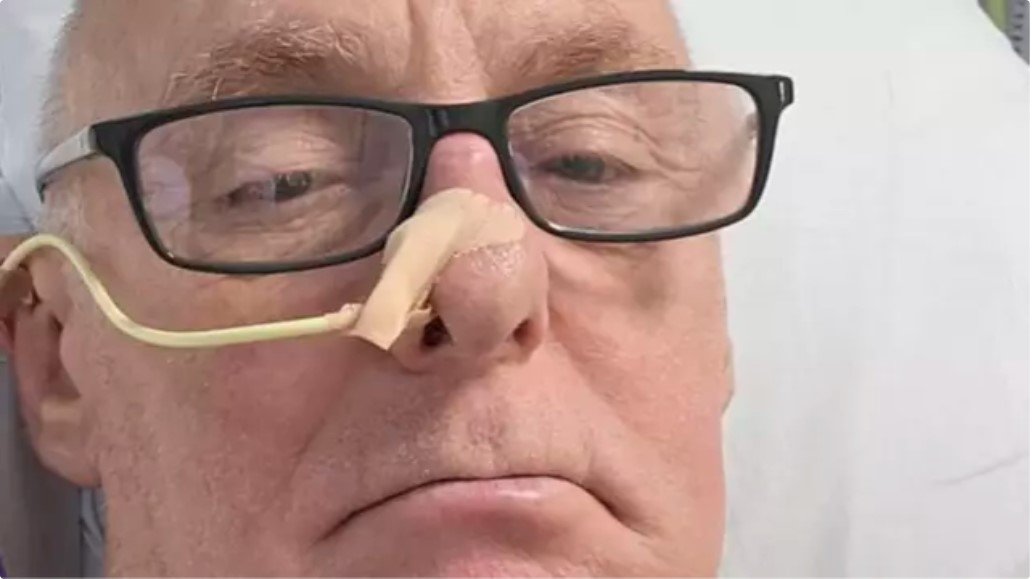Brit Frank Lane was left ‘surprised’ by his throat cancer diagnosis
A healthcare expert has detailed the link between oral sex and and throat cancer after a British man was left ‘surprised’ to be diagnosed with the deadly disease.
Frank Lane first noticed he had a firm, egg-sized swelling on the right side of his neck in November 2023.
He initially thought it might have been caused by swollen glands after a workout at the gym, but when nothing changed after two weeks, he decided to pay his doctor a visit.
“When the doctor looked in my mouth she could actually see it sticking out of the top of my tonsils, it was the size of a boiled egg,” he said.
Frank underwent a biopsy, and 10 days later, he was diagnosed with throat cancer.
The father learned that the cancer was believed to have been caused by the human papillomavirus (HPV), which had been contracted through oral sex.
Roughly 18,000 Americans are diagnosed with throat cancer every single year, with one doctor suggesting rising cases, particularly in younger people, could be because of oral sex.
Dr. Hisham Mehanna, who works at the University of Birmingham in the UK, penned for the Conversation: “HPV is sexually transmitted. For oropharyngeal cancer, the main risk factor is the number of lifetime sexual partners, especially oral sex.
“Those with six or more lifetime oral sex partners are 8.5 times more likely to develop oropharyngeal cancer than those who do not practice oral sex.”
There are more than 200 strains of HPV, making it the most common sexually transmitted infection in the US.
Some strains are thought to cause genital warts or cervical cancer, while there is now the risk of throat cancer.
Mehanna added: “The prevailing theory is that most of us catch HPV infections and are able to clear them completely. However, a small number of people are not able to get rid of the infection, maybe due to a defect in a particular aspect of their immune system.
“In those patients, the virus is able to replicate continuously, and over time integrates at random positions into the host’s DNA, some of which can cause the host cells to become cancerous.”
As for Frank, doctors determined he contracted HPV about 40 years ago, when he was serving in the army.
Following his diagnosis, Frank underwent two rounds of chemotherapy, followed by a six-week course of radiotherapy.
“I was in the army for 12 years and that [radiotherapy] was the most painful thing I’ve ever experienced in my life,” he said.
The treatment thankfully worked and Frank is now in the all clear.
If you’ve been affected by any of these issues and want to speak to someone in confidence, contact the American Cancer Society on 1-800-227-2345 or via their live chat feature, available 24/7 every day of the year.

